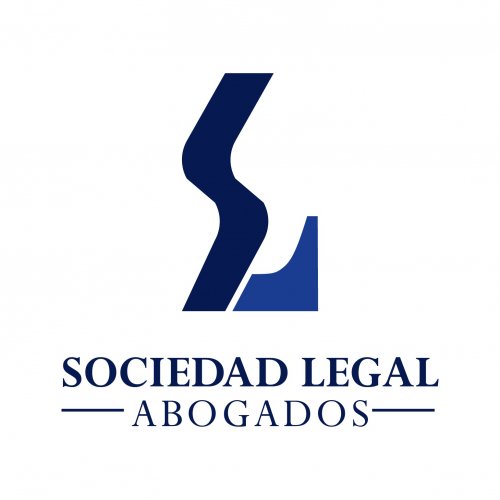Best Family Lawyers in Ecuador
Share your needs with us, get contacted by law firms.
Free. Takes 2 min.
Free Guide to Hiring a Family Lawyer
Or refine your search by selecting a city:
List of the best lawyers in Ecuador
About Family Law in Ecuador
Family law in Ecuador is a branch of civil law that governs legal relationships and responsibilities within the family unit. It encompasses a wide range of issues that can arise during family life, such as marriage, divorce, adoption, child custody, and inheritance. The aim of family law in Ecuador is to protect the rights and welfare of family members while promoting stability and harmony within society. The legal framework is guided by the Civil Code, supplemented by specific laws that address particular family-related concerns.
Why You May Need a Lawyer
Engaging a lawyer familiar with family law in Ecuador can be crucial in a number of situations:
- Divorce proceedings: Navigating the legal complexities of divorce, including division of property and child custody.
- Child custody and support: Ensuring that the rights and interests of children are protected during custody disputes.
- Adoption: Facilitating the legal process of adopting a child, whether locally or internationally.
- Domestic violence: Seeking protection and legal recourse for victims of domestic abuse.
- Inheritance and wills: Managing matters related to inheritance disputes and the creation of wills.
Local Laws Overview
Ecuador’s family law is structured to safeguard familial relationships under various contexts. Some key aspects include:
- Marriage and Civil Unions: Both marriage and legally recognized civil unions have defined legal rights and obligations.
- Divorce: There are different grounds for divorce, including mutual consent and irretrievable breakdown of the marriage.
- Custody: Child custody is determined with consideration for the well-being and best interests of the child.
- Inheritance: The Civil Code specifies how property is to be distributed among heirs if there is no will.
- Protection Orders: Legal measures are available to protect individuals from domestic violence.
Frequently Asked Questions
What is the legal age for marriage in Ecuador?
The legal age for marriage in Ecuador is 18. However, individuals aged 16 and 17 can marry with parental consent.
Can foreign citizens get married in Ecuador?
Yes, foreign citizens can marry in Ecuador, but they must comply with specific requirements, such as providing documentation proving their single status.
How is child support calculated in Ecuador?
Child support is determined based on the needs of the child and the financial capacity of the parents. The court may issue a support order after considering these factors.
Is Ecuador a community property country?
Ecuador follows a community property regime where assets acquired during the marriage are considered jointly owned and are divided equally upon divorce.
How can I initiate a divorce proceeding in Ecuador?
A divorce can be initiated by filing a petition with the relevant court. Documentation proving the grounds for divorce must be submitted.
What steps are involved in adopting a child in Ecuador?
The adoption process includes completing an application, undergoing a home study, and obtaining approval from the National Directorate of Adoptions.
How can I protect myself from domestic violence?
Victims of domestic violence can seek protection orders through the court. Legal assistance can be vital in navigating this process.
What rights do grandparents have in custody disputes?
Grandparents may petition for visitation rights or custody if it is in the child's best interests, subject to court approval.
What are the inheritance rights of children born outside of marriage?
Children born outside of marriage have the same inheritance rights as those born within marriage according to Ecuadorian law.
How can I challenge a will in Ecuador?
A will can be challenged in court if there are grounds such as incapacity or undue influence. Legal guidance is advisable in these cases.
Additional Resources
For those seeking further assistance, the following resources can be immensely helpful:
- Judicial Council of Ecuador: Offers information on legal procedures and access to justice services.
- Ministry of Economic and Social Inclusion (MIES): Provides support related to family welfare and child protection.
- Legal Aid Clinics: Many cities have clinics offering free or low-cost legal services to those in need.
- Non-Governmental Organizations (NGOs): Various NGOs provide advocacy and assistance in family matters, particularly domestic violence and child welfare.
Next Steps
If you need legal assistance related to family matters in Ecuador, consider the following steps:
- Consult a Licensed Lawyer: Contact a lawyer experienced in family law to discuss your situation and options.
- Gather Documentation: Prepare any necessary documents such as marriage certificates, birth certificates, or court orders.
- Understand Your Rights: Educate yourself about your legal rights and responsibilities to make informed decisions.
- Consider Mediation: In some cases, mediation can be a viable alternative to court proceedings, allowing parties to reach amicable agreements.
- File the Necessary Legal Documents: Your lawyer can assist in preparing and submitting any required documents to the court.
Lawzana helps you find the best lawyers and law firms in Ecuador through a curated and pre-screened list of qualified legal professionals. Our platform offers rankings and detailed profiles of attorneys and law firms, allowing you to compare based on practice areas, including Family, experience, and client feedback.
Each profile includes a description of the firm's areas of practice, client reviews, team members and partners, year of establishment, spoken languages, office locations, contact information, social media presence, and any published articles or resources. Most firms on our platform speak English and are experienced in both local and international legal matters.
Get a quote from top-rated law firms in Ecuador — quickly, securely, and without unnecessary hassle.
Disclaimer:
The information provided on this page is for general informational purposes only and does not constitute legal advice. While we strive to ensure the accuracy and relevance of the content, legal information may change over time, and interpretations of the law can vary. You should always consult with a qualified legal professional for advice specific to your situation.
We disclaim all liability for actions taken or not taken based on the content of this page. If you believe any information is incorrect or outdated, please contact us, and we will review and update it where appropriate.
Browse family law firms by service in Ecuador
Ecuador Attorneys in related practice areas.
Browse family law firms by city in Ecuador
Refine your search by selecting a city.













